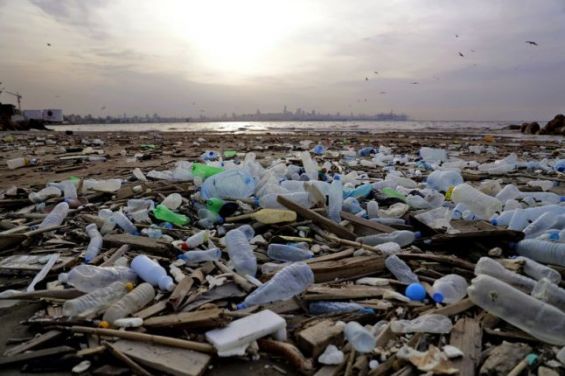International non-governmental organization World Wildlife Fund (WWF) released a report, Friday, to raise awareness about plastic waste thrown into the Mediterranean Sea, focusing on 22 countries.
The report entitled «Stop the Flood of Plastic : How Mediterranean countries can save their sea», the NGO working in the field of the wilderness preservation, and the reduction of human impact on the environment gave an overview of the situation of the Mediterranean, one day before the World Ocean Day, celebrated on June 8.
The report revealed that «the Mediterranean region is the world’s fourth largest producer of plastic goods, and its residents and visitors generate 24 million tons of plastic waste each year»,
«Tourism increases waste by up to one-third during the summertime in some countries, resulting in local waste management facilities being often overwhelmed», indicated the NGO.
6.6 million tons of plastic waste is mismanaged annually in the Mediterranean. «Almost half mismanaged waste is accounted for Algeria and Morocco», warned the NGO.
Morocco criticized for mismanaged plastic waste
Moreover, plastic waste undergoing controlled treatment in Morocco accounts for 1.2% of the 17.45 million tons produced in the region. The document adds that in the Mediterranean sea, more than 5% of mismanaged waste comes from the kingdom, which represents more than 0.43 million tons.
In addition to the fact that Morocco recycles less than 10% of this waste, WWF also criticized the kingdom for importing garbage, including plastic.
«Many of the countries accepting larger volumes of imported waste, like Turkey and Morocco, have challenges with effective waste management. As a result, they were equipped to handle the sudden influx of imports. This means that plastics collected and exported for recycling to these nations may have ended up in the landfills, incinerators or open dumps».
The NGO reports that Morocco, Turkey and Tunisia do not impose taxes on waste, unlike their Mediterranean neighbors, such as Italy, France and Greece.
The report, however, welcomed the fact that Morocco implemented a ban on the production, sale and use of non-biodegradable plastic bags in 2015.





 chargement...
chargement...













